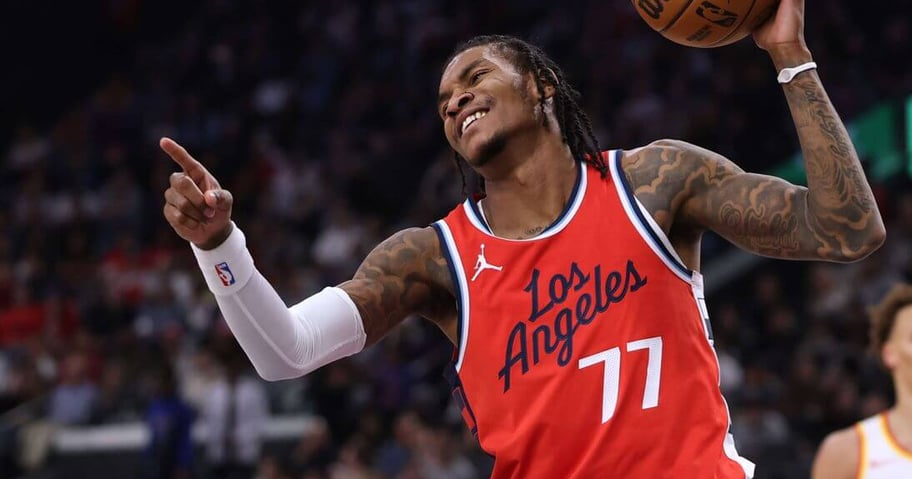The De’Andre Hunter trade was an important win-now move for the Cavaliers that addresses a number of concerns: It’s a clear upgrade on the wing, it gets them below the tax line and it gives them long-term roster stability since Hunter is under contract at a reasonable number for the next two seasons.
Small forward has been a hole on the Cavs since LeBron James departed in 2018. Hunter is a player the Cavs have liked since the 2019 draft, when the Hawks stepped in front of Cleveland at No. 4 to select him. The Cavs ultimately took Darius Garland fifth.
At 6-foot-8, Hunter has the type of length and wing span the Cavs desperately need on the wing with an undersized backcourt. He is a plus defender and he’s shooting 39 percent from 3 this season. He has primarily been a bench player for the Hawks this year, but he could easily slide into the starting lineup with the Cavs if Kenny Atkinson so chooses.
Losing Georges Niang hurts the front court depth, where the Cavs were already thin. The trade opens up a roster spot, and the Cavs will likely be searching for another big either through trade or in the buyout market.
The Cavs trimmed enough salary to get under the luxury tax line, which was a goal entering the deadline. By avoiding paying the tax this year, their repeat offender clock won’t begin until next season when Evan Mobley’s max extension begins (along with max contracts for Darius Garland and Donovan Mitchell). That means the Cavs won’t hit repeat offender status until 2028-29.
LeVert was having the most efficient season of his career, but he’s in the final year of his deal. The Cavs are likely to be an apron team next season and are still hoping to re-sign Ty Jerome, who is a free agent this summer. The fact Hunter is under control into the future is attractive to a team entering apron status for the first time.

